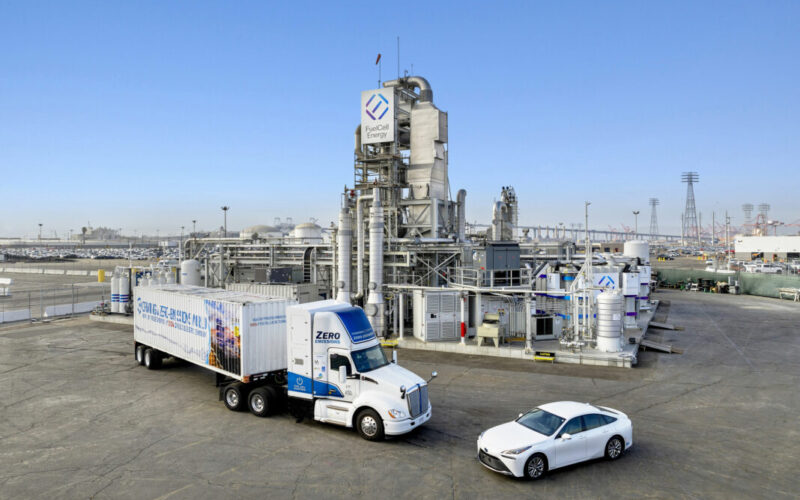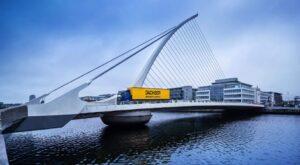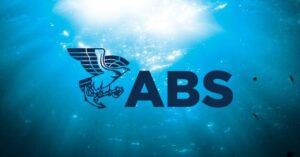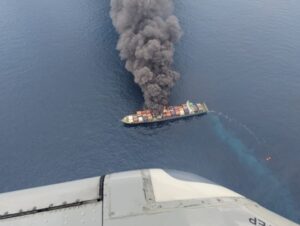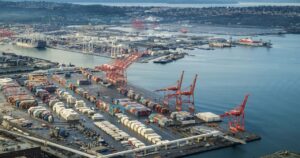FuelCell Energy, Inc. (FCEL) and Toyota Motor North America, Inc. have completed the world’s first “Tri-gen system” at Toyota’s Port of Long Beach operations.
The system, designed and operated by FuelCell Energy, marks a pivotal moment in sustainable technology by producing three vital resources: renewable electricity, renewable hydrogen, and usable water, all derived from directed biogas.
Under a 20-year purchase agreement, FuelCell Energy is set to supply Toyota with the products generated by Tri-gen.
Tri-gen reportedly reflects Toyota’s dedication to environmental sustainability, as it powers Toyota Logistic Services (TLS) Long Beach, making it the world’s first port vehicle processing facility to rely entirely on onsite-generated, 100 per cent renewable energy.
READ: Port of LA, Toyota & Kenworth Unveil Next-Gen Eco-Trucks
“By utilising only renewable hydrogen and electricity production, TLS Long Beach will blaze a trail for our company,” said Chris Reynolds, Chief Administrative Officer, Toyota.
“Working with FuelCell Energy, together we now have a world-class facility that will help Toyota achieve its carbon reduction efforts, and the great news is this real-world example can be duplicated in many parts of the globe.”
Tri-gen, at its peak performance, generates 2.3 megawatts of renewable electricity. A portion of this electricity will be used by TLS Long Beach to sustain its operations at the port, which processes approximately 200,000 new Toyota and Lexus vehicles annually.
Additionally, the system has the capability to produce up to 1,200 kilogrammes/day of hydrogen, catering to TLS Long Beach’s fueling needs for its light-duty fuel cell electric vehicle, Mirai, and providing hydrogen to the nearby heavy-duty hydrogen refueling station, supporting TLS logistics and drayage operations at the port.
As noted by FuelCell Energy, Tri-gen can co-produce 1,400 gallons of water per day. This water is utilised by TLS Long Beach for vehicle wash operations, significantly reducing the demand on local water supplies.
In the domain of green techy, the California Air Resources Board (CARB) unveiled new regulations in May, mandating that all sales of heavy-duty trucks must be zero-emission by the year 2045.

